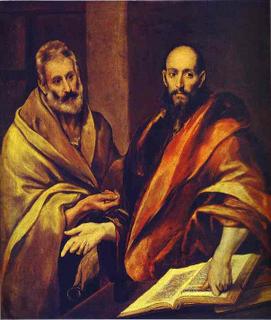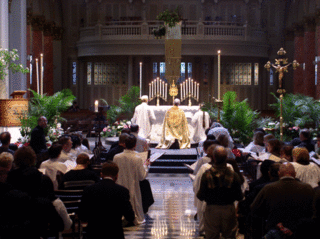 Of course, we need all the inspiration we can get. Here is a lovely illustration of Gustave Dore, with the young crusader bidding good-bye to his beautiful wife and children, his squire readying his horse in the courtyard. The wife takes up the sword that is dedicated to Our Lady's honor to give it to her husband. Perhaps the young crusader is afraid. Perhaps he is stunned by the import of the moment. Perhaps he is thinking, "The readiness is all." Perhaps he is humming a Chesterton poem, prophetically.
Of course, we need all the inspiration we can get. Here is a lovely illustration of Gustave Dore, with the young crusader bidding good-bye to his beautiful wife and children, his squire readying his horse in the courtyard. The wife takes up the sword that is dedicated to Our Lady's honor to give it to her husband. Perhaps the young crusader is afraid. Perhaps he is stunned by the import of the moment. Perhaps he is thinking, "The readiness is all." Perhaps he is humming a Chesterton poem, prophetically. This is the dawn of each day for us--taking up the sword, hearts filled with enthusiasm, bravely to run the race and fight the fight and keep the faith.
Being dedicated to the honor of Our Lady would be a swell chivalry to revive and relive!
Our Lady, Queen of Victory, pray for us!




